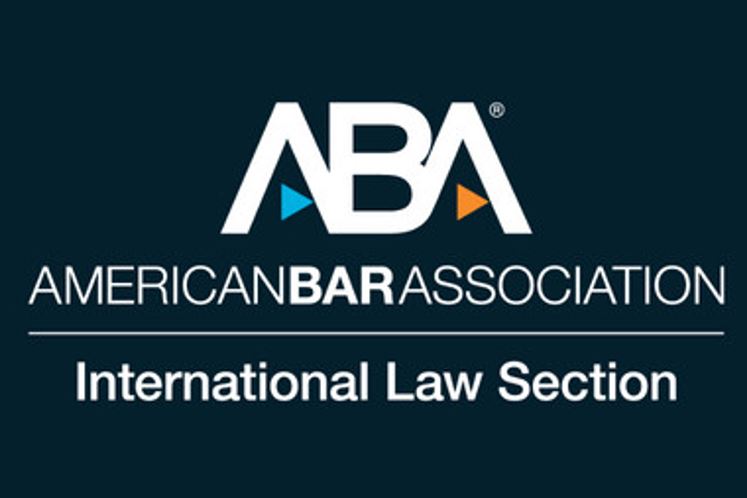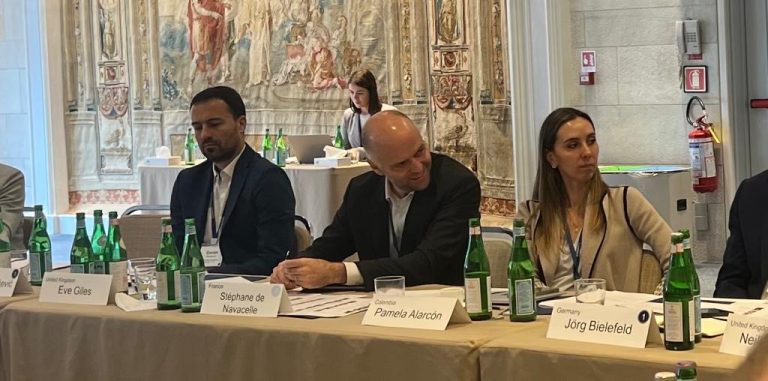I. Can allegations of corruption serve as a bar to jurisdiction of arbitral tribunals or admissibility of claims?
Under Peruvian law, allegations of corruption in the context of an arbitration do not constitute an obstacle to the jurisdiction of the arbitral tribunals or to the admissibility of claims made in arbitration, provided that such allegations or claims are linked to matters freely available and permitted by law or international treaties that have been submitted to the jurisdiction of the arbitral tribunals by the parties, in accordance with Article 2 of the Peruvian Arbitration Law (Legislative Decree No. 1071).
However, it is important to specify that the analysis, review and ruling of the arbitrators on the facts surrounding corruption can only be made in relation to the scope of the arbitrable matter in order to determine legal consequences (i.e. nullity of the contract, indemnification) regarding the subject matter of the dispute in view of jurisdiction granted by the parties through their allegations and evidence offered in the arbitration. This could not imply determining the criminal culpability of the parties involved, the existence of a crime or establishing a criminal sanction within the arbitration, since criminal justice is reserved solely to the jurisdiction of criminal judges.
Likewise, as in French and Colombian law, the arbitration agreement is autonomous from the substantive agreement in which it may be included, and is governed by the principle of arbitral separability, so that a possible nullity of the contract (for example, for corruption) does not determine the nullity or affect the validity of the arbitration agreement to which the parties will continue to be bound, and on the basis of which the arbitral tribunal will have jurisdiction to rule within the limits mentioned above.
II. Can allegations of corruption affect the validity of an arbitral award?
Under Peruvian law, the validity of arbitration awards may only be affected if one of the parties to the arbitration files an appeal for annulment based on grounds for annulment provided for in Article 63 of the Peruvian Arbitration Law (i.e. non-existent arbitration agreement; infringement of rights in the process; improper composition of the arbitration tribunal or improper arbitration proceedings; ruling by the arbitration tribunal on matters not subject to its decision, or on matters not susceptible to arbitration; arbitration award contrary to international public order in the case of international arbitration). If the appealing party proves that any of the aforementioned grounds are verified, the Peruvian Commercial Courts may annul the arbitration award.
In this regard, in arbitration cases where acts of corruption have been alleged or evidence of corruption has been presented regarding a certain act being analyzed by the arbitral tribunal, the award issued may only be subject to annulment if any of these causes are present.
If it were the case that none of the parties to the arbitration alleged acts of corruption, nor did the evidence indicate this, nor had the arbitral tribunal warned the parties of the existence of an alleged act of corruption to promote the contradiction by the parties in the arbitration, then, if despite this, the arbitral tribunal were to rule on the matter in the award, the validity of said award could eventually be questioned, for example, because the tribunal is ruling on a matter not subject to its jurisdiction or that is not subject to its decision, as well as the violation of due process.
III. In annulment or enforcement proceedings, can the court review the award and the merits to determine whether corruption or related offences affect the underlying dispute?
Under Peruvian law, in annulment proceedings, the courts cannot review the merits of the arbitration award, in accordance with Article 62 of the Peruvian Arbitration Law, which expressly prohibits judges who hear the annulment of an award from ruling on the merits of the case or on the content of the decision or from qualifying the criteria, motivations or interpretations set forth by the arbitral tribunal. Judges may only review the form of the arbitration award and review whether the award violates the essential principles of formal logic (i.e. non-contradiction, undue process).
In accordance with Article 40 of the Peruvian Arbitration Law, when the parties have agreed to submit to arbitration, the arbitration tribunal is the only authority with jurisdiction over the merits of the dispute. In this sense, judges may not review the merits of the acts of corruption that the arbitration tribunal may have eventually analyzed and considered for the issuance of its arbitration award.
In the proceedings for judicial enforcement of the arbitration award, the courts may not review the merits of the matter decided in the arbitration award, and in accordance with Article 68 of the Peruvian Arbitration Law, the judicial authority is prohibited, under its own responsibility, from admitting appeals that hinder the enforcement of the award.
IV. Can courts review corruption allegations which have not been raised in the arbitration?
Under Peruvian law, in line with the answer to the previous question, the courts do not review and cannot rule on the merits of arbitration so they could not review allegations of corruption that have been made in the arbitration. Likewise, if, for example, the appealing party in the appeal for annulment of the arbitration award made allegations of corruption linked to the facts of the dispute that were not raised in the arbitration, the judges could not undertake the analysis of said allegations because the arbitral tribunal is the only one competent to hear the merits of the dispute and to decide on the related and accessory issues raised during the arbitration proceedings, not the judicial courts.
In cases where the party appealing to annulment of an arbitral award makes allegations of corruption as part of the basis of its appeal, for example, an allegations of corruption in the issuance of the arbitral award by the arbitral tribunal, the courts may review such allegations solely for the purpose of verifying whether due process was respected in the arbitration proceedings or whether or not there is a violation of international public order in order to determine the validity of the arbitral award.
V. Do courts defer to the arbitral tribunal’s finding that no corruption acts were committed?
Under Peruvian law, in the proceeding of annulment of an arbitral award, commercial courts do not review the merits of the matter resolved by the arbitral tribunal, so that these courts could not strictly be linked or not to the ruling of the arbitral tribunal on the acts of corruption alleged in the arbitration. Commercial courts only review the validity of the arbitral award in accordance with Article 63 of the Peruvian Arbitration Law.
If the acts of corruption alleged in the arbitration are also the subject of a criminal proceeding, criminal judges carry out an independent review of the case and are not bound by the analysis or decision made by an arbitral tribunal in the arbitration regarding the acts of corruption. Criminal courts and arbitration tribunals are independent of each other and operate under very different standards of proof, with criminal courts carrying out a more thorough review of the evidence (high standard of proof) to determine whether a crime has occurred and to establish the corresponding criminal consequences.
VI. Is there a standard of proof used by arbitrators and reviewing courts to assess the existence of corruption?
Under Peruvian law, the standard of proof used by arbitrators and courts regarding the existence of corruption is different In arbitration, in accordance with Article 43 of the Peruvian Arbitration Law, the arbitration tribunal reviews and determines the admission, relevance, validity and value of evidence in arbitration, and is governed by the standard of intimate conviction and/or the regime of preponderance of probabilities, that is, it will be enough to prove that the occurrence of the event (act of corruption) is more likely than its non-existence, although there is a tendency to apply a more rigorous standard to arbitrations involving acts of corruption, as occurs in civil proceedings.
On the other hand, the courts, in the case of a criminal proceeding on corruption, have a higher standard of proof of acts of corruption, since in this type of proceeding the principle of presumption of innocence governs, which requires that crimes be proven beyond all reasonable doubt.
VII. Which method do arbitrators and reviewing courts employ to establish evidence of corruption?
Under Peruvian law, arbitration tribunals may use different methods to identify corruption acts, including any suspicious activity surrounding the corruption act. Thus, arbitrators usually determine the existence of acts of corruption based on indications, that is, using documents that allow proving a specific event, from which the existence of acts of corruption can be reasonably presumed.
Likewise, in the framework of arbitration, considering the evidentiary standard applied by arbitrators, there is usually no direct evidence that accounts for the act of corruption, but there could be a series of indications that allow the arbitrator to conclude the existence of acts of corruption. Along these lines, for example, in arbitrations where there is a stage of document exhibition, and the arbitration tribunal orders the exhibition of certain documents linked to the allegations of acts of corruption, if they are not exhibited, the negative inference rule is usually applied. In this way, the reluctant party could be prejudiced by a qualification of its conduct as an indication that such evidence is unfavorable to it, or that it confirms the hypotheses that were intended to be corroborated.
On the other hand, since commercial courts in the context of annulment proceedings cannot examine the merits of the arbitral award, no particular method applies to establish proof of corruption. In the event that allegations of corruption are the basis of the appellant to annul the arbitral award, commercial courts will review said allegation in order to verify whether or not there was a violation of due process, for which they can use different methods to identify acts than that applied in criminal proceedings (high standard of proof in accordance with the principle of presumption of innocence).
VIII. Are arbitrators seated in your jurisdiction bound by criminal proceedings on issues that could impact the underlying arbitration dispute?
Under Peruvian law, in accordance with Articles 3.2 and 3.3 of the Peruvian Arbitration Law, the arbitral tribunal is fully independent and is not subject to any order, provision or authority that undermines its powers, and has full powers to process arbitration proceedings.
In this sense, there is independence between the arbitration and the criminal proceedings, so the arbitrators are not bound by the decisions of the Criminal Courts. In addition, criminal matters are not the subject of arbitration, although the arbitrators may rule on acts of corruption to determine non-criminal consequences.
This allows us to verify that there is no necessary dependence between what is decided in the criminal proceedings and what is decided in the arbitration, and vice versa. Thus, for example, there may not be a criminal conviction or even an acquittal judgment regarding the crime of corruption, and this will not oblige the arbitrator to exonerate the legal consequences of acts of corruption that have been submitted to his jurisdiction.
IX. To what extent do they rely on or defer to findings from parallel criminal investigations?
Under Peruvian law, as previously mentioned, there is no dependence between the decision of the arbitral tribunals and the criminal courts, so that existence of a criminal proceeding in parallel to an arbitration in which the same acts under analysis are discussed does not condition the decision of one or the other court, since the scope of the ruling is different.
In this sense, the existence of an investigation or criminal proceedings for the same facts or for events directly linked to the arbitration case does not generate a case of prejudiciality, so the arbitrators are not obliged to suspend the arbitration if criminal investigations are initiated, as the jurisdiction and effects of each ruling will be different. Thus, for example, a criminal acquittal judgment does not force the arbitrator to exempt the person who previously had the status of defendant in the criminal proceedings from civil liability.
Under these considerations, a suspension of arbitration due to the existence of parallel criminal investigations would be questionable, since it would generate an infringement of the right of access to arbitration justice, considering that a suspension would imply that a party is condemned to await the conclusion of criminal proceedings that will not determine the outcome of the future arbitration award.
X. Are remedies available when an arbitral tribunal rules that there is no evidence of corruption but subsequently a criminal ruling decides otherwise?
Under Peruvian law, taking into account the independence of criminal and arbitration proceedings, if there were a subsequent criminal judgment that determined the opposite of what was decided in the arbitration award regarding the criminal acts (i.e. corruption) that were reviewed in the proceedings, it would not have an impact on the decision adopted by the arbitration tribunal, since its scope and consequences of its decision are different.
According to Article 62 of the Peruvian Arbitration Law, only the annulment appeal can be filed against the arbitration award, which must be filed within 20 business days following the issuance of the award or the decision that resolves the requests against the arbitration award. However, the commercial courts cannot analyze the merits of the case resolved by the arbitration tribunals; therefore, there is no direct remedy for the situation raised in the question.



